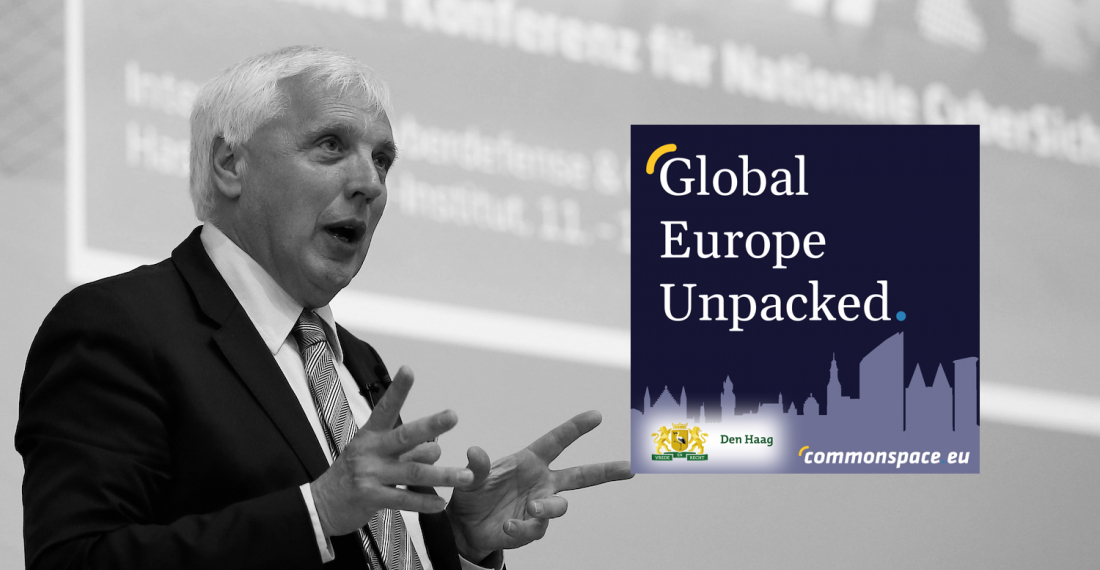“What is remarkable about the EU is that for a long time it has been talking about the instruments, but there was never the consensus to actually use them in a crisis.”
[The podcast is also available on all of the usual channels, including Apple Podcasts, Spotify and Google Podcasts]
In series two of Global Europe Unpacked, commonspace.eu is collaborating with the City of The Hague to bring you several conversations looking at the future of Europe in the world. This series runs alongside the EU’s largest citizen consultation to date, the Conference on the Future of Europe. Our objective is to spark your interest in some of the important issues under discussion and encourage you to get involved.
Since its establishment, the EU has relied on soft power – such as diplomacy – and economic instruments as its main foreign policy tools, leaving hard and military power to its member states and the main Western military alliance, NATO. The concept of EU hard power is hardly new but has by-and-large remained, up to now, abstract; however, in light of the EU’s growing place in the world and recent events in Ukraine exposing threats that were thought to have been consigned to the history books, what was once inconceivable is starting to gain ground.
To address this topic, Will Murray speaks to Prof Dr Jamie Shea – Professor of Strategy and Security at the University of Exeter and former NATO Deputy Assistant Secretary General for Emerging Security Challenges. This is the second time that Prof Shea joins the podcast, having spoken last series on the question, ‘Is EU ‘strategic autonomy’ compatible with NATO?’.
Amongst other things, they discuss:
- Whether EU hard power necessary in light of what is happening in Ukraine and the EU’s geostrategic ambitions;
- What the EU’s Strategic Compass is and how it relates to the future of European defence and security;
- Whether the ongoing events in Ukraine have changed the thinking on the Strategic Compass and EU hard power more generally;
- The shape of the EU’s current relationship with NATO and how it is changing;
- Whether the situation in Ukraine has affected the EU-UK relationship, and if so, how; and
- Whether after the invasion of Ukraine, EU soft power is still relevant.
The interview was recorded 11 March 2022.






